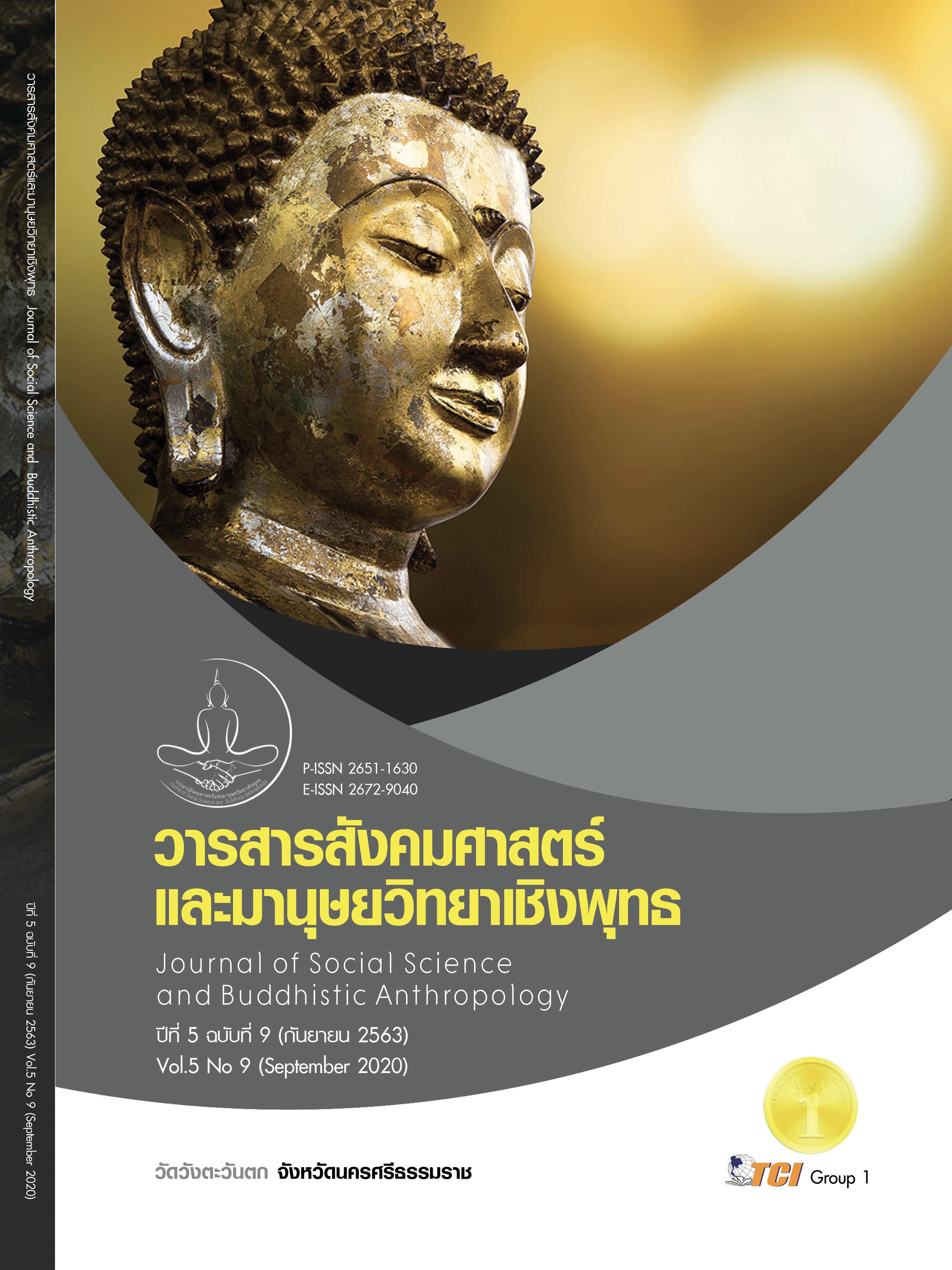INDIVIDUALIZATION OF PUNISHMENT
Keywords:
Investigation, Fact Disciplines, Individualization of PunishmentAbstract
The objectives of this research article were: 1) to study concepts, theories and development about punishments appropriate for the individual. 2) to study the law about punishments suitable for individuals of Thailand and foreign country. 3) to study and analyze of problems relating to the use of discretion in punishing and collect an evidence to examination principle problems relate the role of the prosecutor in the sentencing process punishment and the problem of the role of the court in the sentencing process 4) to suggest an improve Thai law criminal procedure code of determining the punishment appropriate to individuals according with the principles of Individual of punishment. This research was a qualitative one based documentary research upon the analytic. The results of research were found as follows: determination of punishment that are not arbitrary (subjectivity), but within the framework of the law that has been clearly defined in advance (objectivity). Determination of punishment in Thailand, the court chose to use pending punishment or waiting for the determination of punishment instead of punishment imprison for the offender if entering the list as required by law. This will result in the offender not having to be imprisoned. Therefore is a way for the court to use discretion in selecting the criminal penalty appropriate for the offender. The attitude which should align with the objectives of individualization punishment, the justification in civil laws determination of punishment of “the facts” and “the objectives of individualization punishment” must conjoint at the level of without any arguments. The most crucial things of individualization of punishment were “the clarification of data regarding both allegation and individual” and “the double check investigation of discretion in punishment”. This caused the penalty had to investigate from 2 governmental organizations in the process of determination of punishment and the court had to play the role of proactive fact finding as a coadjutant check that could receive the data clearly. As the result of coercion was a compulsory knowledge for the civil law lawyers and would lead to attitude that aligned with individual of punishment.
References
กุลนิษฐ์ รัตนคูสกุล. (2559). การลงโทษในการกระทำความผิดหลายกรรมกับการป้องปรามอาชญากรรม. ใน วิทยานิพนธ์นิติศาสตรมหาบัณฑิต สาขาวิชานิติศาสตร์ . มหาวิทยาลัยธรรมศาสตร์.
คณิต ณ นคร. (2558). กฎหมายวิธีพิจารณาความแพ่งภาคการดำเนินคดี. (พิมพ์ครั้งที่ 3). กรุงเทพมหานคร: สำนักพิมพ์วิญญูชน.
พัชราภรณ์ กองอุบล. (2547). ปัญหาการบังคับใช้พระราชบัญญัติการสอบสวนคดีพิเศษ พ.ศ. 2547 กรณีการสอบสวนร่วมหรือปฏิบัติหน้าที่ร่วมกับอัยการ. ใน รายงานการศึกษา. สำนักพัฒนาและสนับสนุนคดีพิเศษ.
โพสต์ทูเดย์. (2563). ศาลพิพากษาจำคุกบรรยิน 8 ปี คดีปลอมเอกสารโอนหุ้นเสี่ยชูวงษ์. เรียกใช้เมื่อ 15 กรกฎาคม 2563 จาก https://www.posttoday.com/social /general/618259
ลาวัลย์ อ่อนโฉม. (2560). การกำหนดโทษให้ได้สัดส่วนเหมาะสมกับผู้กระทำความผิดในความผิดเกี่ยวกับยาเสพติด. ใน วิทยานิพนธ์นิติศาสตร์มหาบัณฑิต สาขาวิชานิติศาสตร์. มหาวิทยาลัยธุรกิจบัณฑิตย์.
ศุภกิจ แย้มประชา. (2558). มองกระบวนการยุติธรรมทางอาญาไทยผ่านการศึกษาเปรียบเทียบ THE THAI CRIMAL JUSTICE SYSTEM A COMPARATIVE. กรุงเทพมหานคร: สำนักพิมพ์ห้างหุ้นส่วนจำกัด เจริญรัฐการพิมพ์.
สำนักงานกฎหมายนิธิลอว์แอนด์วินด์. (2563). คดีความผิดต่อร่างกาย. เรียกใช้เมื่อ 2563 กรกฎาคม 13 จาก http://www.nitilawandwinner.com/content/3529/คดีความผิดต่อร่างกาย-ทนายนิธิพล
สุรสิทธ์ แสงวิโรจนพัฒน์. (2548). การใช้ดุลพินิจในการกำหนดโทษ. ใน วิทยานิพนธ์นิติศาสตรมหาบัณฑิต สาขาวิชานิติศาสตร์ . มหาวิทยาลัยเทคโนโลยีสุรนารี.
อุทิศ สุภาพ. (2561). ปรัชญาอาชญาวิทยาในการลงโทษ การปฏิบัติหน้าที่ของผู้พิพากษา. เรียกใช้เมื่อ 1 สิงหาคม 2561 จาก https://www.matichon.co.th/columnists /news_479705
Thaireform. (3 มิถุนายน 2561). กรมราชทัณฑ์ เปิดตัวเลขล่าสุด คนล้นคุก ผู้ต้องขัง 2.2 แสน ต้องคดียาเสพติด. สำนักข่าวอิศรา.









